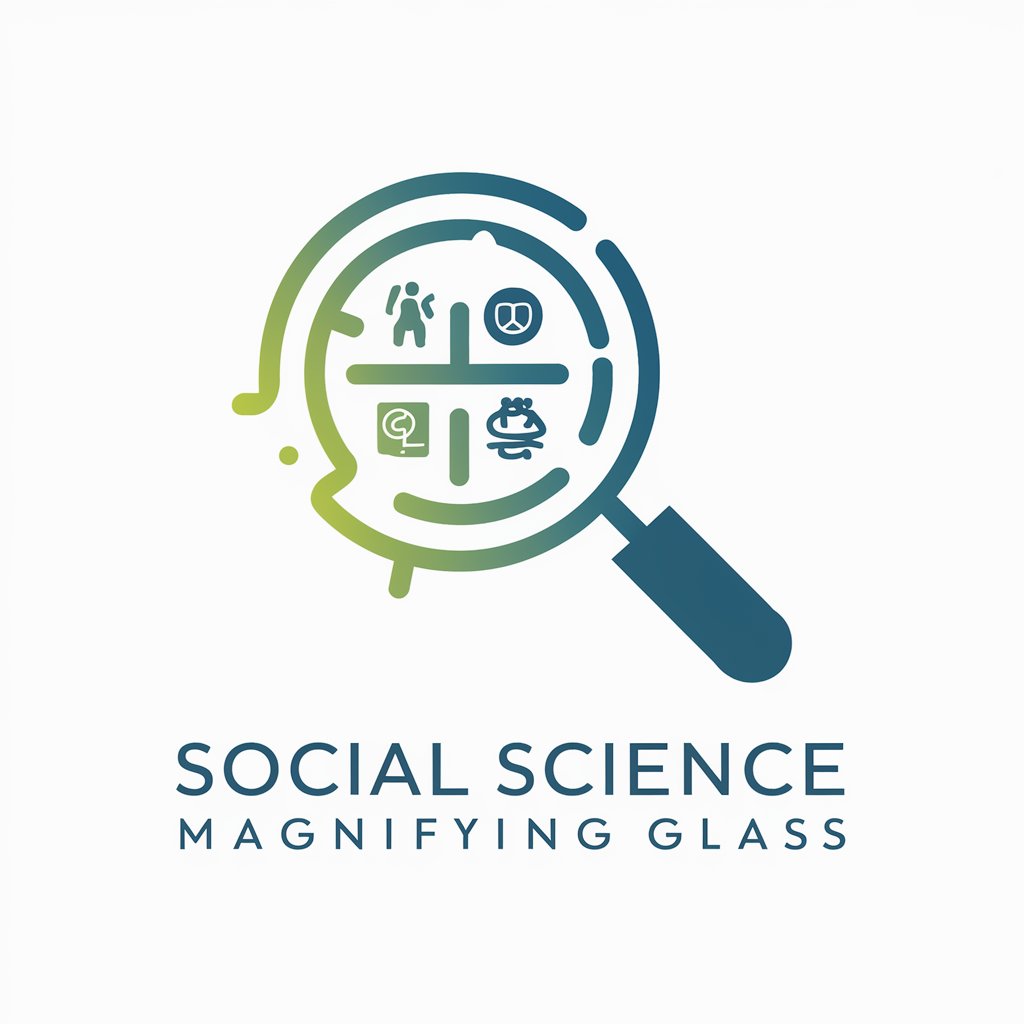8 GPTs for Linguistic Studies Powered by AI for Free of 2025
AI GPTs for Linguistic Studies are advanced artificial intelligence tools based on Generative Pre-trained Transformers, tailored for linguistic research and applications. These tools leverage the power of GPTs to understand, interpret, and generate human languages, making them ideal for tasks ranging from language learning to linguistic data analysis. Their relevance lies in their ability to provide precise, contextualized solutions for the diverse needs of linguistic studies, offering insights into language patterns, usage, and evolution.
Top 7 GPTs for Linguistic Studies are: KnowledgeGrapher,TorNaid_00_Identity,Historical Etymology Expert,Social Science Magnifying Glass,Ancient Worlds Expert,汉语拼音转换器 (Pinyin Master),HaruNami Bot
KnowledgeGrapher
Visualize Knowledge, Unlock Insights

TorNaid_00_Identity
Unraveling the Layers of a Linguistic Innovator

Historical Etymology Expert
Unlock the past, understand words deeply

Social Science Magnifying Glass
Unveiling Humanities Insights with AI

Ancient Worlds Expert
Unraveling history with AI-powered insights

汉语拼音转换器 (Pinyin Master)
AI-powered precision in Chinese transliteration.

HaruNami Bot
Bridging Languages with AI

Essential Attributes of Linguistic GPTs
AI GPTs for Linguistic Studies come equipped with a suite of unique features designed to support and enhance linguistic research. These include advanced natural language understanding and generation, support for multiple languages, adaptability to various linguistic tasks, and the capability for in-depth language analysis. Special features might also encompass tools for language learning, technical assistance for linguistic research, enhanced web search capabilities for linguistic data gathering, image creation for visual linguistic analysis, and data analysis tools for interpreting language patterns.
Who Benefits from Linguistic GPTs
The primary beneficiaries of AI GPTs for Linguistic Studies include linguistics students, researchers, language educators, and developers interested in linguistic applications. These tools are designed to be accessible to individuals without programming skills, offering user-friendly interfaces and pre-configured options. At the same time, they provide extensive customization capabilities for users with technical expertise, allowing for tailored linguistic analysis and research applications.
Try Our other AI GPTs tools for Free
Interactive Lesson Planning
Revolutionize your lesson planning with AI GPTs. Tailored, efficient, and interactive tools for educators at all levels. Embrace the future of education.
Comprehensive Assignment Grading
Revolutionize academic assessment with AI GPT tools for Comprehensive Assignment Grading. Experience seamless integration, accurate grading, and insightful feedback for enhanced educational outcomes.
Custom Classroom Decorations
Revolutionize classroom design with AI GPTs: Tailored, creative, and educational decoration solutions at your fingertips.
Adaptive Learning Support
Explore how AI GPTs for Adaptive Learning Support are transforming education with personalized, efficient, and interactive learning experiences, designed for a diverse audience and adaptable to various educational needs.
Standard-Aligned Educational Tool
Discover AI GPTs as Standard-Aligned Educational Tools: transforming education with personalized, standard-compliant AI solutions for a diverse audience.
Code Optimization Strategies
Discover AI GPTs for Code Optimization: revolutionary tools designed to refine coding practices, enhance efficiency, and optimize code across various programming languages.
Expanding Horizons with Linguistic GPTs
AI GPTs for Linguistic Studies are not just tools for analysis; they represent a paradigm shift in how linguistic research can be conducted. With user-friendly interfaces and integration capabilities, these GPTs offer a bridge between complex linguistic theories and practical applications, making it easier to explore linguistic phenomena and integrate these insights into existing systems or workflows.
Frequently Asked Questions
What are AI GPTs for Linguistic Studies?
AI GPTs for Linguistic Studies are AI-powered tools designed to support linguistic research and applications, offering capabilities for language understanding, generation, and analysis.
How can these tools benefit linguistic research?
They offer in-depth analysis of language data, support multiple languages, and provide tools for language learning and linguistic pattern recognition, enhancing the quality and scope of research.
Are these tools accessible to non-programmers?
Yes, they are designed with user-friendly interfaces that do not require programming skills, making them accessible to a wider audience interested in linguistic studies.
Can developers customize these GPTs for specific linguistic tasks?
Yes, developers can leverage programming interfaces to tailor these tools for specific research needs or linguistic applications.
What languages do these GPTs support?
AI GPTs for Linguistic Studies typically support multiple languages, although the exact number can vary depending on the specific tool.
How do these tools handle language learning?
They can provide personalized learning experiences, leveraging natural language processing to offer language practice, vocabulary building, and grammar correction.
Can these GPTs integrate with existing linguistic databases?
Many GPTs offer integration capabilities, allowing researchers to combine these tools with existing linguistic databases for enhanced analysis.
What are the potential applications of GPTs in linguistic studies?
Applications include linguistic pattern analysis, language evolution studies, comparative linguistic research, language teaching aids, and tools for linguistic data visualization.